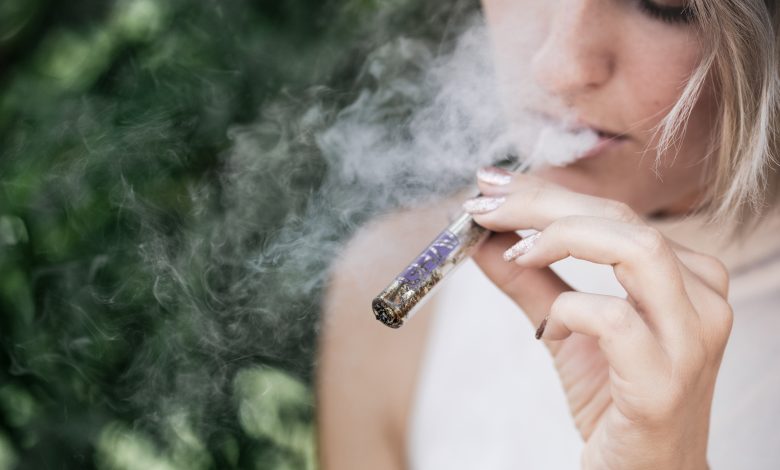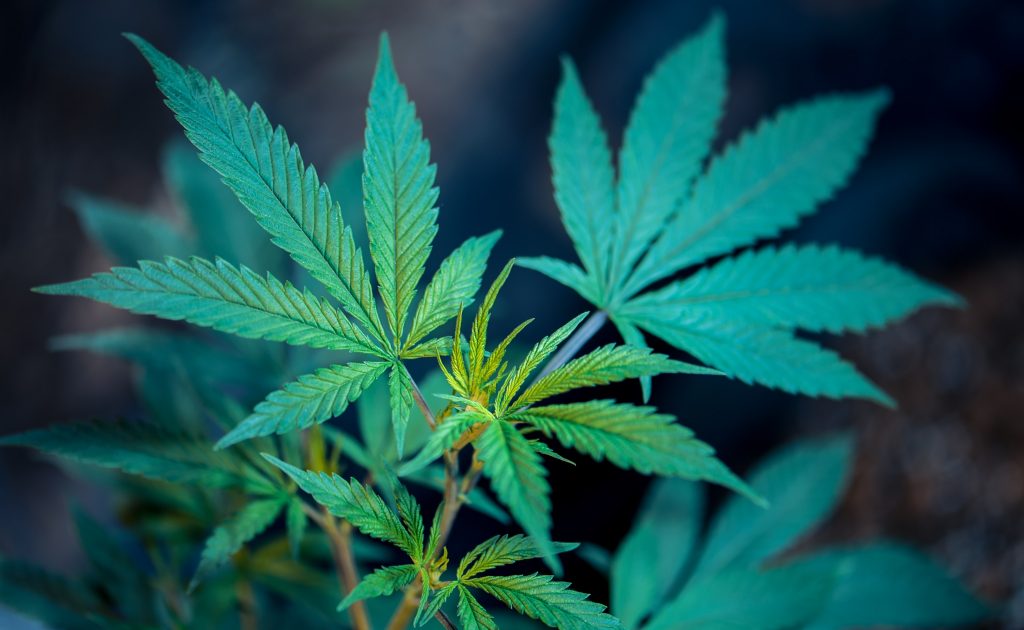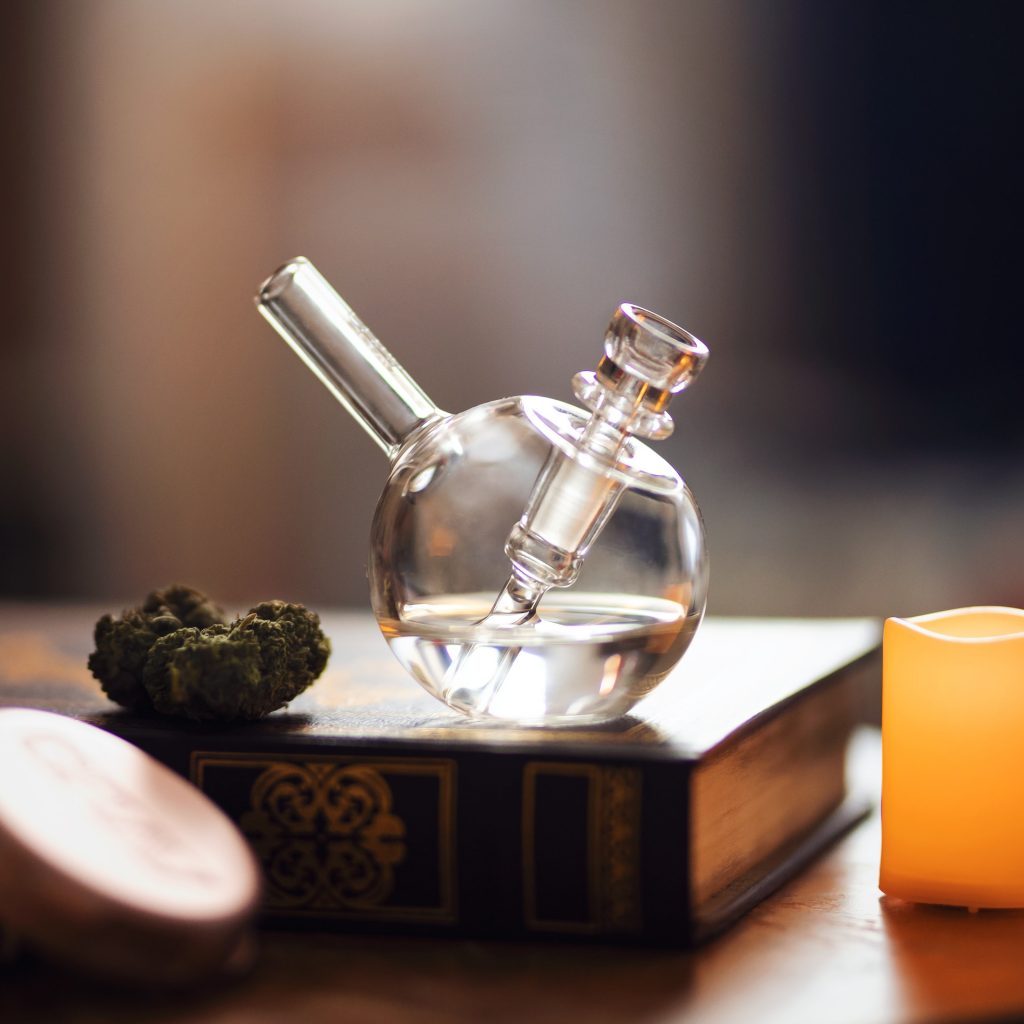Marijuana Decriminalization vs. Legalization

You may hear these words thrown around when discussing marijuana laws, but they can easily get confused – and the distinction is major. Knowing the difference and the laws in your state can help you avoid a criminal conviction of marijuana possession. So what’s the difference then? The short answer is that you’re only safe to possess a reasonable amount of marijuana in a state where marijuana has been legalized. Possession and use in decriminalized states, while definitely not as serious as states where it’s still fully illegal, can still come with a risk. The exact laws, and rather importantly, how much you can safely and legally possess, are a bit more tricky.
Marijuana Decriminalization
Decriminalization is a pretty literal word. It means that something is no longer punishable with a criminal charge, but rather a civil one. If a state has decriminalized marijuana, it generally means that, instead of jail time and a criminal record, those caught with less than a certain amount of marijuana will face civil charges. The charge can be likened to a ticket you get for a traffic violation. In some states, law enforcement will turn a blind eye entirely to a small amount of marijuana. The penalties that come with possessing more than a state’s decriminalized amount can vary from, at the most, jail time to civil cases, drug rehabilitation, fines, and more. However, most states will vary on just what amount is decriminalized and what their penalties are. As such, it’s important to know the laws surrounding decriminalization in your state.
States that have decriminalized some aspects of marijuana possession include:
- Connecticut
- Delaware
- Hawaii
- Maryland
- Mississippi
- Nebraska
- New Hampshire
- New Mexico
- Rhode Island
- Virginia
The big caveat to mention here is that the decriminalization does not apply to the cultivation or distribution of marijuana. These are very serious crimes still that tend to end up in felony convictions. Additionally, marijuana is still illegal on a federal level, but the government is currently respecting the states’ rights to self governance in this case.

Connecticut Decriminalization Laws
Generally, the first offense of possessing a small amount (less than half an ounce) of marijuana in Connecticut won’t result in criminal charges, but rather a civil charge with a fine of up to $150, and a second offense will increase the maximum fine amount up to $500. Other penalties may be drug rehabilitation on the second offense and being labeled as a repeat offender on any subsequent offenses. Possessing more than half an ounce of marijuana will result in a misdemeanor charge, which has a penalty of up to a year in jail and a possible fine of up to $1,000. As far as possessing paraphernalia goes, it’s based on the intent to use the paraphernalia with less than half an ounce of marijuana or more. Less than half an ounce is just a civil infraction with a maximum $300 fine, but anything more is a misdemeanor with up to three months in jail and a $500 fine.
Delaware Decriminalization Laws
Delaware allows possession of up to one ounce before it will press civil charges with a maximum fine of $100. If it’s more than an ounce but less than 175 grams, it’s still just a misdemeanor that can come with three months in jail and an up to $575 fine. However, anything more than 175 grams will be a felony charge with a prison sentence ranging from three to 25 years, relative to the amount found on their possession and considering aggravating factors. Delaware also based their paraphernalia laws on the amount of marijuana it’s intended to be used with; over an ounce is when it becomes a misdemeanor. The civil infraction penalty is just a fine of up to $100, but the misdemeanor can come with up to six months in prison and/or a $1,000 fine.
Hawaii Decriminalization Laws
In Hawaii, just three grams can lead to a violation and an up to $130 fine. More than three grams but less than an ounce increases to a misdemeanor, and its maximum penalties are 30 days in jail and a $1,000 fine. If it’s up to a pound, that misdemeanor penalty increases to a year in jail and an up to $2,000 fine. However, anything more than a pound is a felony charge with up to five years in prison and a $10,000 fine.
Maryland Decriminalization Laws
Less than ten grams in Maryland has been decriminalized to a civil offense with just an up to $100 fine. Possession of ten grams to 50 pounds increases the charge to a misdemeanor with up to a year in jail and a possible up to $1,000 fine. Anything more than that is a felony and can result in at least five years in prison and a maximum fine of $100,000. Possessing paraphernalia is just a civil offense, but selling paraphernalia will likely be a misdemeanor with a fine of up to $500 on the first offense and up to five years and $2,000 on subsequent offenses. The use of marijuana in public may result in an up to $500 fine.
Mississippi Decriminalization Laws
In Mississippi, possession of less than 30 grams of marijuana may result in an up to $250 fine on the first offense. Second and third offenses will be misdemeanors with penalties of at least five to 60 days and possibly an up to $250 fine or up to six months and a $1,000 fine, respectively. However, anything more than 30 grams is a felony with incarceration time ranging from one to 30 years and fines from $1,000 to $100,000. Having any amount of marijuana in a vehicle – except in the trunk – is an aggravating factor, which comes with at least a misdemeanor charge and up to 90 days in jail and a $1,000 fine. Possession of paraphernalia is a misdemeanor, looking at six months in jail and/or a $500 fine. A conviction of any drug charge may cause a six month suspension of your license here.
Nebraska Decriminalization Laws
It’s only an infraction to possess less than an ounce of marijuana in Nebraska, but you only get that one warning – and an up to $300 fine. After that, it becomes a misdemeanor and could come with up to five days in jail, as well as a $500 fine. The third offense increases that maximum jail sentence to a week. Possession of over an ounce but less than a pound is still just a misdemeanor, but its jail time can be up to three months. Any more than a pound is a felony charge, meaning up to five years in prison and a $10,000 fine. Additionally, possession of paraphernalia on the first offense is not criminal, but it can have an up to $300 fine. For any after that, the fine can reach from $200 to $500.
New Hampshire Decriminalization Laws
The first and second offenses of possessing less than 3/4 of an ounce of marijuana will be a civil violation with an up to $100 fine. The third offense may bring that fine up to $300, and the fourth reaches a Class B misdemeanor – that’s with no jail time and up to a $1,200 fine. Over 3/4 of an ounce makes it a misdemeanor, which could mean up to a year in jail and a $350 fine. Possession of paraphernalia can be a misdemeanor with a maximum penalty of a year in jail and $2,000.
New Mexico Decriminalization Laws
Up to half an ounce of marijuana is punishable by only up to a $50 fine. However, possessing more than that will turn it into a misdemeanor. For more than half an ounce but less than an ounce, it could come with 15 days of incarceration and a $100 fine. But on the second offense, it’s up to a year and $1,000, which is the same sentence as possessing one to eight ounces. Eight ounces or more is a felony, meaning up to a year and a half in prison and a fine of $5,000. Possessing paraphernalia is the same as up to half an ounce of marijuana, which is a $50 fine, but distributing it to a minor makes it a fourth degree felony.
Rhode Island Decriminalization Laws
Rhode Island law makes possession of less than an ounce of marijuana a civil violation with a fine of up to $150. After that, up to a kilogram, which is when it automatically become a more serious distribution charge, is a misdemeanor punishable by up to a year in jail and $500.
Virginia Decriminalization Laws
Virginia is particularly lenient. You can possess up to an ounce of marijuana with only the threat of a civil violation with a $25 fine. Paraphernalia only becomes a misdemeanor when you’re intending to or are selling it.

Marijuana Legalization
Legalization doesn’t always mean you’re completely free and safe from consequences. Similar to alcohol, even states with legal marijuana still have laws, as well as penalties that come with breaking them. The biggest one is that all legal marijuana states require you to be at least 21 years old to possess or use marijuana. Other regulations may include how much you can possess at a time, how many marijuana plants you may grow, where you can use the drug, and driving while under the influence. States are also able to regulate the cultivation, production, and distribution of marijuana, allowing them to place a tax on all sales and make a profit off of the industry. As such, cultivating and distributing marijuana outside of what’s legally allowed can result in serious criminal charges. It’s also important to know what rules your apartment, landlord, city, or town may specifically have beyond the state’s law.
General rules that most legal states abide by are about responsibility. It’s best to assume that you’re not allowed to smoke in any public place or federal property, unless you’re sure otherwise. It’s advised to keep all marijuana locked up to protect children and animals. Just as with alcohol, having an open container of marijuana or driving while under the influence of the drug are very serious crimes that may result in DUI charges. All marijuana in vehicles should be kept sealed and in the trunk or locked in the glovebox.
The states and territories that have legalized marijuana thus far include:
- Alaska
- California
- Colorado
- Illinois
- Maine
- Massachussetts
- Michigan
- Nevada
- Oregon
- Vermont
- Washington
- District of Columbia
Alaska Legalization Laws
Alaska allows possession of up to an ounce in public and up to four ounces in your home. An ounce to four ounces (not in your home) will be a misdemeanor with a jail sentence of up to a year and possibly a fine of up to $10,000. More than four ounces is a felony, which means up to five years in prison and $50,000. You’re allowed up to six marijuana plants, but only three may be matured.
California Legalization Laws
California allows possession of up to an ounce before it becomes a misdemeanor with up to six months in jail, possibly an up to $500 fine, or both. Eight grams is the most concentrate allowed at a time. Additionally, up up to six plants plants are allowed, along with anything cultivated from them.
Colorado Legalization Laws
It’s legal to possess up to an ounce of marijuana, but one to two ounces is a petty offense punishable by up to $100. Two to 12 ounces is a misdemeanor, ranging from no jail time to a year and a half and/or $100 to $5,000 in fines, depending on the amount. Over 12 ounces, however, is a felony, meaning one to two years in prison and a fine of up to $100,000. Up to an ounce of concentrate is legal. Open use of the drug may also result in a $100 fine.
Illinois Legalization Laws
30 grams are allowed by Illinois law, and a first offense of possessing 30 to 100 grams is a misdemeanor with penalties of up to a year in jail and $2,500. The subsequent offenses become felonies, which means one to three years in prison and up to $25,000. Possessing 100 to 5,000 grams is the same charge, while more than that will cause the imprisonment to vary from one to 15 years.
Maine Legalization Laws
Maine allows for up to 2.5 ounces of marijuana, and more than that may have a sentence of six month to ten years and $1,000 to $20,000. It’s also legal to possess up to five grams of concentrate, three flowering plants, twelve immature plants, and an unlimited amount of seedlings.
Massachusetts Legalization Laws
Those 21 years and older can use marijuana in Massachusetts, as long as they aren’t on public or federal property. On your person, you may have up to an ounce, but you can have up to ten ounces in your home. Possession of more than an ounce outside of the home can be a misdemeanor with up to six months’ jail time and/or a $500 fine for the first offense. Subsequent offenses are still a misdemeanor, but the sentence can be up to two years and $2,000. You may also have up to five grams of concentrate. For a single household, you may have up to six marijuana plants, and two or more adults can have up to twelve at once.
Michigan Legalization Laws
For Michigan, it’s legal to have 2.5 ounces on you and ten ounces at home. Possession of 2.5 to five ounces is a civil violation that may bring a $500 fine, while five ounces or more is a misdemeanor. They may also have 12 plants and 15 grams of concentrate.
Nevada Legalization Laws
In Nevada, you may legally possess up to an ounce of marijuana, 12 plants, and 3.5 grams of concentrate.
Oregon Legalization Laws
Publicly, Oregon allows up to an ounce of marijuana, but they allow up to eight ounces of homegrown marijuana in the house. Possession in public of over an ounce to two ounces is a Class B violation with a $1,000 fine. Using marijuana in public may also result in a Class B violation. Two to four ounces becomes a Class B misdemeanor with up to six months in jail and a $2,500 fine.
Vermont Legalization Laws
An ounce is legal in Vermont, but a first offense of one to two ounces is a misdemeanor. That may include a six month jail sentence and up to a $500 fine. Subsequent offenses increase that to two years and $2,000. Anything more than two ounces is a felony charge, of which the jail time and fine may range from two to fifteen years and $2,000 to $500,000. Two plants and four immature plants are allowed, as well as up to five grams of concentrate.
Washington Legalization Laws
Possessing less than an ounce in private won’t result in any charges in the state of Washington, but using in public can result in a civil fine. An ounce to 40 grams is a misdemeanor with one to ninety days in jail and $1,000, while anything more is a felony charge, meaning up to five years in prison, $10,000, or both. Seven grams of concentrate is also legal.
District of Columbia Legalization Laws
Less than two ounces and up to six plants are considered legal in the capital. Possessing more than two ounces is a misdemeanor with up to six months in jail and a $1,000 fine.

Decriminalization vs. Legalization
The big difference between the two really comes down to how much you’re allowed to possess and what types of charges come when that amount is exceeded. Decriminalization just means that you won’t face criminal charges for certain amounts and circumstances, but legalization also gets rid of those civil offenses and allows for more use. That doesn’t mean, however, that legal states are free to use marijuana how they see fit; there are still rules and regulations, similar to those involving alcohol. 27 states thus far have either made partial decriminalizations or outright legalized marijuana, so it will be interesting to see what states join in during the coming years. Overall, it’s best to be sure about what exactly is legal in your state before possessing or using marijuana.



